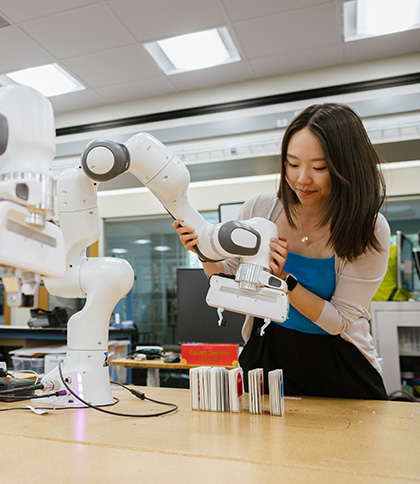Stanford Unveils Virtual AI Scientist Capable of Autonomous Experimentation

Why the New Virtual AI Scientist Matters
Stanford researchers have launched a breakthrough virtual AI scientist—an autonomous agent that can independently design, run, and analyze biological experiments. This unprecedented development signals a transformative step for artificial intelligence in scientific discovery, with the potential to revolutionize fields ranging from drug discovery to genomics by accelerating research cycles and enhancing experimental accuracy[4].
The Technology Behind Autonomous Experimentation
Unlike traditional AI models that require significant human oversight, Stanford’s system employs advanced agentic AI capable of iterating on hypotheses and dynamically adapting to new data. The AI operates much like a human researcher: it formulates scientific questions, sets up and conducts experiments, evaluates results, and adjusts future actions based on outcomes—all in real time[4][5].
- Adaptive Hypothesis Generation: The AI refines its experimentation strategies, learning from both success and failure as experiments unfold.
- Domain Flexibility: While presently focused on genomics and drug discovery, its architecture is built to accommodate other research domains in the future.
Expert Perspectives and Industry Comparison
AI scientists of this sophistication are rare; comparable efforts mostly exist at the prototype stage. Industry leaders note that most AI models still require domain experts for experiment design and results interpretation—this new development reduces such dependencies and enables much faster iteration cycles[3][4].
- According to experts, this approach may slash drug discovery timelines from years to months, with downstream implications for public health and innovation productivity.
- MIT researchers and industry analysts predict a surge of similar agentic AI applications as organizations prioritize autonomy for tasks traditionally anchored in expert labor[5].
Broader Impacts and Future Outlook
Leading AI analysts suggest that virtual scientists will disrupt not only biomedical research but other experimental fields as well. This technology aligns with the accelerating trend toward agentic AI: collaborative, specialized agents that require minimal human guidance while sharing results for networked learning[3][5].
Stanford’s project exemplifies the shift toward integrated, autonomous AI systems that may soon operate across multiple sectors. Experts emphasize the need for robust oversight, ethical guidelines, and transparent data protocols if these agents are to transform research responsibly and safely[1][5].
Conclusion: The Start of an Autonomous Discovery Era
The debut of Stanford’s virtual AI scientist marks the dawn of autonomously driven scientific experimentation—cutting edge not only for AI researchers, but for anyone invested in the future of medicine, science, and automation. As agentic AI technologies mature and proliferate, experts foresee profound effects on research efficiency, innovation pipelines, and even how we train future human scientists.
How Communities View Stanford’s Virtual AI Scientist
The announcement of Stanford’s autonomous AI scientist has sparked vibrant debate across X/Twitter and Reddit’s r/MachineLearning and r/Futurology subreddits.
-
Excitement and Optimism (≈50%): Many in the tech community, such as @aioptimist and r/MachineLearning regulars, hail the development as a pivotal step toward fully autonomous research labs. Notable industry leaders like @AndrewYNg and @dr_feifei have publicly praised its technical innovation and potential for biomedical discovery.
-
Skepticism Over Practical Utility (≈25%): Some, including @skepticAI and r/Artificial comments, caution that autonomous agents in science remain limited to narrow domains and raise questions about real-world reliability beyond controlled trials.
-
Ethical and Oversight Concerns (≈15%): Another faction—driven by r/ethicsinAI posts and X threads—voices worries about reproducibility, transparency, and bias, stressing the importance of rigorous peer review and regulatory safeguards.
-
Job Displacement and Societal Impact (≈10%): A number of users in r/biotech and @futurejobs express concern over the future role of human scientists, debating whether such AI could eventually threaten researcher positions or instead augment research teams.
Overall Sentiment: The prevailing tone is cautious optimism: the majority accept this as a milestone, but emphasize the necessity for human oversight and careful, ethical deployment. Notable voices from both academia and industry predict that broad adoption is inevitable—with the greatest benefits realized in collaborative, hybrid human-AI research teams.